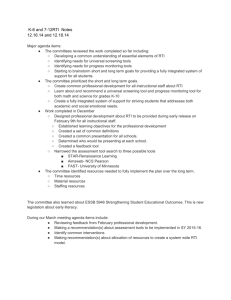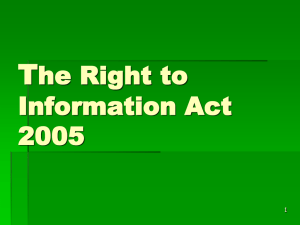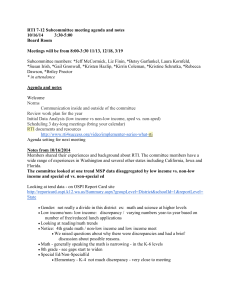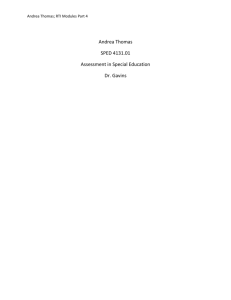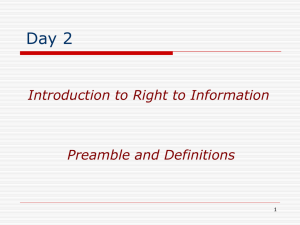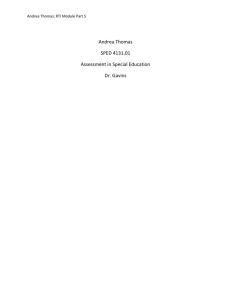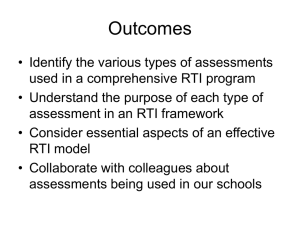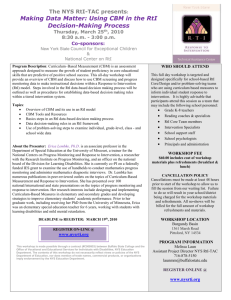rti2005_short
advertisement
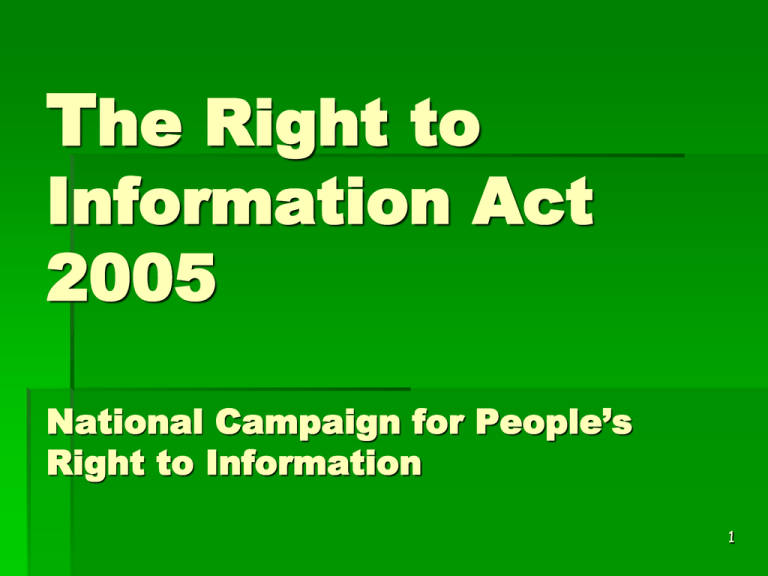
The Right to Information Act 2005 National Campaign for People’s Right to Information 1 The RTI Act 2005 - Coverage Comes into effect 120 days after enactment. Covers central, state and local governments, and all bodies owned, controlled or substantially financed; non-government organisation substantially financed, directly or indirectly by funds provided by the appropriate Government (2(h)) Covers executive, judiciary and legislature (2(e)) Covers central, state and local governments. Includes information relating to private bodies which can be accessed under any other law for the time being in force (2(f)) 2 The RTI Act 2005 – Some Definitions "information" includes any material in any form, opinions, advices, and samples. "right to information" includes inspection of work, records; taking certified samples of material; 3 The RTI Act 2005 - Processes Application with fee, to Public Information Officer (PIO). PIO in each office/PA. Assistant PIO at subdistrict levels Information within 30 days. 48 hours where life or liberty is involved. No action on application for 30 days is a deemed refusal. No fee for delayed response 4 The RTI Act 2005 – Processes… Exempt information: a. Affecting sovereignty, integrity, security, strategic, scientific or economic, or other interests of the State, relation with foreign state or leading to incitement of an offence; b. Forbidden by courts; c. Affecting privilege of Parliament or Legislature; d. Commercial confidence, trade secrets or intellectual property, unless larger public interest so warrants; e. received in confidence from foreign government; 5 RTI Act 2005-Exemptions contd. f. endangers life or physical safety or identifies confidential source of information or assistance g. impedes the process of investigation or apprehension h. cabinet papers, till after the decision has been taken, and the matter is complete, or over: i. personal information which would cause invasion of the privacy unless larger public interest justifies it. 6 RTI Act 2005-Exemptions contd. Infringes copyright, except of the state. Intelligence and security agencies exempt – except for corruption and human rights violation charges Notice to third party Most exempt information released after 20 years. Notwithstanding anything a public authority may allow access to information, if public interests in disclosure outweighs the harm to the protected interests. 7 RTI Act 2005 - Appeals Appeals First appeal with senior in the department Second appeal with Information Commission Appeals to be settled in 30-45 days Onus of proof on refuser/public authority Envisages an independent Information Commission at the Central and State level. To be appointed by a committee of PM/CM, leader of opposition and one minister. 8 RTI Act 2005 - Penalties Penalties imposable by Information Commission on PIO or officer asked to assist PIO For unreasonable delay – Rs 250 per day up to Rs 25,000 For illegitimate refusal to accept application, malafide denial, knowingly providing false information, destruction of information, etc. – up to Rs. 25,000 fine Recommendation for departmental action for persistent or serious violations 9 RTI Act 2005 - Access Universal Access – especially to the Poor Fee at a reasonable level. No fee for BPL. APIOs at sub-district levels. No need to specify reason for seeking information or other personal details Provision to reduce oral requests into writing Provision to provide all required assistance, including to sensorily disabled persons. Information to be provided in local languages Provision for damages 10 RTI Act 2005–Responsibilities of Public Authorities Publishing all relevant facts while formulating important policies or announcing the decisions which affect public (4(1)(c)). Providing reasons for its administrative or quasi judicial decisions to affected persons (4(1)(d)). Providing a large amount of information suo moto (4(2)). Providing information to Information Commission (25(2)). 11 THANK YOU
